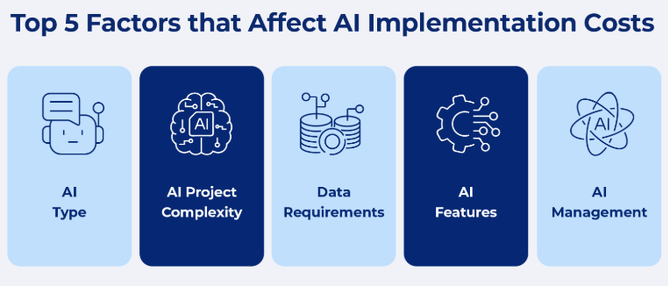The world of travel is no stranger to change. From the days of paper maps to mobile navigation apps, from hand-written manifests to online booking platforms—travel has evolved, and tech has enabled this. But the rise of Artificial Intelligence (AI) brings mixed feelings for many. Stories that ‘anything’ will be possible sit alongside those of the significant costs and tech knowledge needed to set it up. And somewhere in the middle of all this is you, the humble Tour Operator.
For multi-day tour operators, this could be both exciting and overwhelming.
You’ve built your business on the passion for creating experiences, not designing and building Ai tech'. And now, every tech article and software provider seems to be making noise about AI. It’s hard not to wonder, "Do I need to do something about this now, or can I wait until it all settles down?"
We want to give you our perspective on how to approach AI in travel and tourism.
Understanding the Shift: Why AI Feels So Big Right Now
What Tour Operators Are Struggling With
The Hidden Cost of Inaction (across all tech)
So, How Much Does AI Actually Cost?
How do I decide which Ai tools to use
How to Prepare for the AI Future
What You Can Do Now (Even Without AI)
Progress over Perfection
AI isn’t a trend. It’s a significant shift in how businesses operate across every industry, including tourism. But here's the thing, despite all the talk of AI automation, AI agents, etc, AI is not a silver bullet. While many consider Ai as a tool, and it is very effective at searching known information and providing responses based on your prompts. Others consider Ai as a future companion in their business, managing complex aspects of their business. But like all tech tools, right now Ai is only as effective as the data it has to work with, the structural integrity and connectivity of this data, and the systems it can plug into.
For tour operators managing multi-day travel experiences, the opportunity is real. Dan Christian presented some impressive case studies at the Educational Travel Consortium Conference. See the link in the footer. (1)
While the messaging for building AI agents is ‘it’s easy with no-code’, that’s not the reality. This is not an easy job for ‘citizen coders’. Implementing Ai on your own requires, skills, knowledge, patience, and the willingness to go through a time consuming and steep learning curve.
There are some challenges in implementing AI tools for travel and tourism.
If you’re feeling unsure, you’re not alone. Here's what many operators are telling us:
“Yes I use Chat GPT, but I don’t have time to explore AI further.” The peak season is busy enough without trying to understand new AI tools.
“Our data is all over the place.” Bookings online, tours in spreadsheets, emails in Outlook, customer info in folders.
“We’re already juggling enough tech.” Reservation systems, CRMs, spreadsheets, emails, accounting software—it’s hard to see where AI fits in.
“We’ll wait until AI tools are cheaper and more plug-and-play.” Understandable—but waiting has its own cost. And we don’t believe AI will be ‘cheap’.
"Which Ai tools to we use". There's now hundreds, if not thousands, of tools for all sorts of tasks.
Does this sound familiar?
Many businesses hesitate to invest in modern tech systems, choosing instead to "wait until the dust settles." But in reality, delaying the transition can be far more expensive in the long run.
Here’s why:
You miss out on efficiency today. Automation of workflows can reduce admin time, streamline communications, and improve customer experiences now.
You fall behind competitors. Operators who embrace smart tools today have systems and processes that make growth easier and faster.
You may end up paying more to catch up. Fixing data silos, retrofitting new tech to disjointed systems, or trying to migrate from outdated tools later can be costly and disruptive.
Customer expectations are already changing. Travellers expect personalisation, mobile experiences, and quick responses.
There’s a suite of different AI tools available and so the cost to use these can vary. Like most single function apps, Open Ai tools have a monthly subscription for less than $100 mo. However building automation workflows or custom-built AI systems can be expensive. This is not drawing pictures, or writing marketing material. This is building end-to-end management workflow systems for your business.
Augustin Rouchon outlines how an AI Agent can transform customer support in his article, Finally! The End of Traditional Customer Support Is Here (2). He notes the break-even point for implementing AI is around 12 service agents, or about 600 calls per day. Currently for small businesses a custom model doesn't make sense.
Also bear in mind the unseen costs of hosting and maintaining the infrastructure. Securing sensitive customer data is another consideration. Suffescom Solutions take a deeper dive into the How Much Does Artificial Intelligence Cost in 2025? (3).
A custom build is not the route most tour operators will, or should take. The smart move is to partner with tourism software providers who are already building AI into their platforms, so you don’t have to start from zero
Jason Recker's 9 step filter check list is a great guide to use. This will help you channel your precious time and resources to the right Ai for your specific needs.
1. Goal Alignment – Does it support a real business priority?
2. Workflow Fit – Will it simplify how our team already works?
3. Stack Integration – Does it connect with tools we already use (Slack, Zapier, etc.)?
4. Time to Value – Will we see results in days, weeks, or months?
5. Team Readiness – Do we have the buy-in and skills to use it well?
6. Repeatability – Is this solving a recurring task or just a one-off?
7. Automation Leverage – Can it reduce manual work without losing human oversight?
8. Cost vs. Complexity – Is the ROI worth the spend and the mental load?
9. Data Ethics & Safety – Is it secure and aligned with our values?
This is where working with an existing technology provider fit’s in. It's our job to help you solve the most challenging aspects of your tourism business.
Like us at Odyssey, many existing technology providers are already planning or building towards the future of AI in travel and tourism. They are designing features that prepare your business for what’s coming, without overwhelming you today.
Here’s how we can help:
1. Build Structural Integrity
It’s valuable if you start by replacing disconnected systems with a centralised, cloud-based platform. This will give you one place for data structures:
Customer relationship management (CRM)
Supplier management
Itinerary creation
Operations & logistics
Reporting and more
With the correct, connected data structure, you’re building the foundation that AI tools in tourism need to operate.
2. Establish Automated Workflows Today, Prepare for Tomorrow
AI still requires instructions. Well established workflows or SOP's will help provide Ai tools with reliable processes to work with. This includes:
Customer communications
Supplier communications and reservations
Resource scheduling like staff and vehicle rostering
Enquiry to Tour to Itinerary to Operations workflow
As AI features become more common, you can turn automations into intelligent workflows with little effort. You'll also be able to connect them to external AI tools when needed.
The Tourism Ai podcast discusses the important of this in Ai Agents are coming here's how Tourism Leaders can get ahead. (4)
3. Stay Human, Enhance Efficiency
AI doesn’t replace your expertise, it should enhance it. Your technology should help you deliver personalised service at scale. You and your team can then focus on building great relationships, while the system handles the back end admin. Bring ethics to your Ai journey and support the human's in your workforce.
Some basic Ai use examples:
Use AI-generated text to suggest itinerary descriptions
Adding automated chat bots to your website to answer common customer enquiries
Embed AI into mobile features to provide personalised service tools.
4. Trust, Security and Compliance
Handling sensitive data is one of the big questions for how AI works, and how this data integrates with other systems. It is especially relevant when working with travellers with health considerations. Working with an existing and credible tech provider ensures your systems are secure, compliant and ready for responsible AI adoption.
5. Consider the impact on the Environment and Communities
While AI offers significant advantages for multi-day tour operators—like efficiency, automation, and personalised service—it’s essential to weigh these against broader impacts on the environment and communities.
Research by Stefan Gössling (AI and Sustainable Tourism: An Assessment of Risks and Opportunities for the SDGs, 2023) highlights that AI adoption in tourism can pose serious risks to sustainability, including:
Job displacement
Increased energy use from data centres
Increased data surveillance
Acceleration of over tourism
The study emphasises the need for a more critical and ethical approach to AI, one that distinguishes short-term gains from long-term sustainability trade-offs.
As a tour operator, you can take practical steps:
Choose AI tools that enhance and help people in their jobs.
Prioritise data privacy and transparency with your customers
Partner with tech providers who share sustainability values... like us at Odyssey
Monitor how Ai affects local communities and suppliers
AI can be a force for good—if implemented thoughtfully. Integrating sustainability into your AI strategy helps protect the places, people, and cultures your tours rely on.
You don’t need to be a tech expert to get started. Here are a few simple steps you can take today:
Step 1: Centralise your data. Move away from spreadsheets and Word docs. Use a fit-for-purpose software system like Odyssey that connects your customer, supplier, and operations data in one place.
Step 2: Audit your processes. Identify where your team is repeating work, copying/pasting, or relying on memory. These are prime candidates for automation (and future AI). Documenting your SOPs will help in establishing future Ai workflows.
Step 3: Talk to your software partner. Ask what their AI roadmap looks like. Are they investing in features that will support your specific needs as a tour operator?
Step 4: Be curious—but cautious. Explore tools like ChatGPT, or Jasper.ai for writing marketing material, or Ai image tools like Canva or MidJourney. There is lots of information available about what Ai tool would suit the task you require. Be wary of handing over customer data to generic platforms without considering privacy controls.
Step 5: Get your team involved. Try different AI tools, create sharing space to learn and distribute the knowledge of what's working, and what people find difficulty with. Have team workshops to capture your workflows... if you repeat a task more than once, it has the potential to be automated and systemised.
The shift to AI in travel and tourism doesn’t need to be dramatic for you. You don’t have to understand every algorithm or trend to take action. But doing nothing isn't a safe or smart option either.
At Odyssey, we take thoughtful, practical steps forward, and help our clients do the same. Whether you’re starting to modernise, or you’re already using mobile apps and customer portals, we’re here to help you through the next stage.
Our focus is to ensure you have sound data management practices, and that data connects (no silos) between your services eg Sales - Reservations - Operations - Finance - Admin. Odyssey provides a central platform that enables seamless workflows. We see this being an essential foundation for Ai to build on.
If you’re like us, and curious about what’s possible, or want to understand what AI might mean for your business, let’s talk. A quick conversation might help you map out a pathway for where you are at, and what the next steps could be.
References:
Christian, D (2025, March). How AI is Transforming Travel | ETC Keynote . YouTube. https://www.youtube.com/watch?v=FoVfKZFAvMs
Rouchon, A. (2024, April 23). Finally, the end of traditional customer support is here. LinkedIn. https://www.linkedin.com/pulse/finally-end-traditional-customer-support-here-augustin-rouchon-hjnof/
How Much Does Artificial Intelligence Cost in 2025? https://www.suffescom.com/blog/how-much-does-artificial-intelligence-cost
The Tourism Ai podcast - Ai Agents are coming here's how Tourism Leaders can get ahead. (4) https://podcasts.apple.com/us/podcast/the-tourism-ai-podcast/id1728742295




